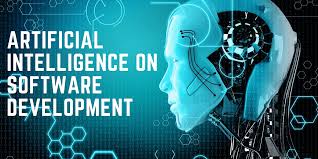Artificial Intelligence (AI) is revolutionizing the way we interact with technology, providing solutions to complex problems across various industries. AI software development is at the heart of this transformation, enabling the creation of intelligent systems that can learn, adapt, and make decisions. However, it is not without its challenges. In this article, we will explore the obstacles faced in AI software development and provide essential tips and strategies to overcome them.
Challenges in AI Software Development
Data Quality and Quantity
Data is a major component of AI systems’ training and prediction processes. The first challenge developers encounter is acquiring high-quality and sufficient data. Data may be noisy, incomplete, or biased, which can lead to inaccurate AI models. To overcome this challenge:
- Implement data quality checks and cleansing processes.
- Utilize data augmentation techniques to expand limited datasets.
- Seek out reliable sources and consider data partnerships.
Model Selection and Hyperparameter Tuning
Choosing the right AI model and optimizing its hyperparameters are critical for the success of an AI project. The vast landscape of AI models and hyperparameters can be overwhelming. To address this issue:
- Experiment with various models to find the best fit for your problem.
- Employ automated hyperparameter tuning tools and techniques.
- Consider transfer learning to leverage pre-trained models for your specific task.
Interpretability and Explainability
AI software development solutions often produce complex and opaque models, making it challenging to interpret and explain their decisions. Interpretability is vital, especially in high-stakes applications like healthcare or finance. To enhance interpretability:
- Use simpler, more interpretable models when possible.
- Employ visualization and explainability tools to make model decisions transparent.
- Encourage the development of industry-wide standards for model interpretability.
Computing Resources
Training advanced AI models demands significant computational power. Many organizations face challenges in acquiring the necessary infrastructure and resources. To address this:
- Leverage cloud computing platforms for scalable resources.
- Use hardware accelerators like TPUs and GPUs if possible.
- Explore distributed training techniques to make efficient use of available resources.
Scalability and Performance
Ensuring that AI software solutions can scale to handle large volumes of data and perform in real-time is a common challenge. To enhance scalability and performance:
- Optimize code and algorithms for efficiency.
- Implement parallel processing and distributed computing.
- Continuously monitor and tune the system’s performance.
Ethical and Regulatory Concerns
As AI technology advances, ethical and regulatory issues become increasingly important. Concerns related to data privacy, bias, and security can hinder AI development. To address these challenges:
- Prioritize ethical AI development practices, including fairness, accountability, and transparency.
- Stay up to date with the latest regulatory requirements and compliance standards.
- Regularly audit and assess AI systems for potential biases and privacy breaches.
Talent Shortage
AI software development requires a specialized skill set, and the demand for AI talent often outpaces the supply. Attracting and retaining qualified AI professionals can be challenging. To overcome this:
- Invest in employee training and development programs.
- Collaborate with universities and research institutions to foster AI talent.
- Consider outsourcing AI projects to experienced development teams.
Tips and Strategies for Overcoming AI Software Development Challenges
Set Clear Objectives
Clearly define your project’s objectives, scope, and success criteria from the outset. This will help in focusing efforts on what truly matters and avoiding scope creep.
Data Management
Establish rigorous data management practices, including data collection, cleaning, and labeling. Ensure that data is representative and unbiased.
Collaboration
Foster collaboration between data scientists, domain experts, and software engineers. Domain knowledge is invaluable in refining AI models.
Agile Development
Adopt agile development methodologies to iterate and adapt quickly. Regular feedback loops and continuous integration are essential for AI projects.
Ethics and Compliance
Embed ethical considerations into the development process. Build AI software with fairness and transparency in mind, and stay compliant with relevant regulations.
Automated Testing
Implement thorough automated testing, including unit tests, integration tests, and stress tests, to ensure the reliability of AI systems.
Documentation
Maintain comprehensive documentation for models, datasets, and code to facilitate collaboration, troubleshooting, and knowledge sharing.
Community Involvement
Engage with the AI community, participate in open-source projects, and attend conferences and meetups to stay updated with the latest developments.
READ MORE: Artificial Intelligence and Machine Learning: The Secret Behind the Powerful AI
Conclusion
AI software development is a promising field with immense potential, but it comes with its share of challenges. Overcoming these challenges requires a combination of technical expertise, ethical considerations, and strategic planning. By addressing data quality, model selection, interpretability, computing resources, scalability, ethics, talent shortages, and following the tips and strategies outlined in this article, AI software development solutions can be successfully navigated, leading to impactful and responsible AI applications. As AI technology continues to evolve, developers must remain adaptable and committed to pushing the boundaries of what is possible while maintaining a strong focus on ethical and responsible AI practices.





